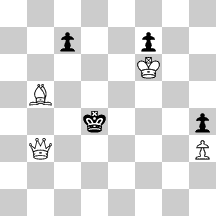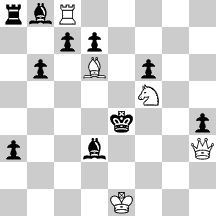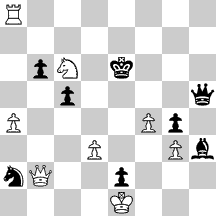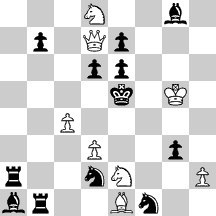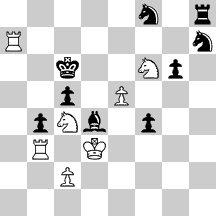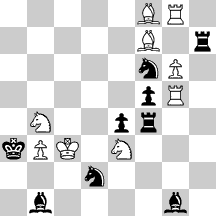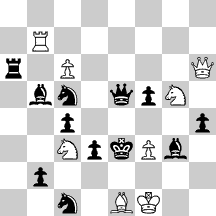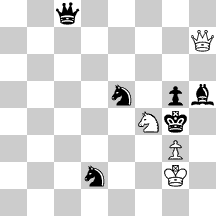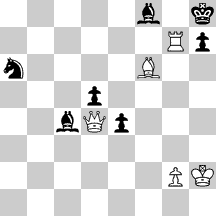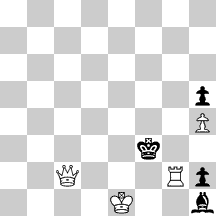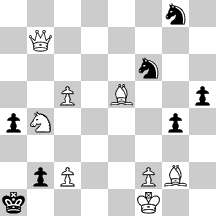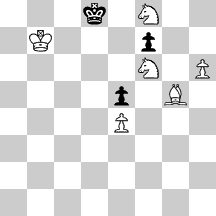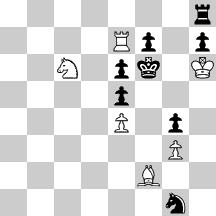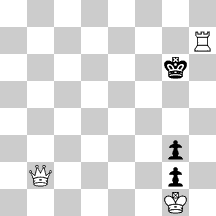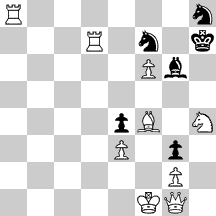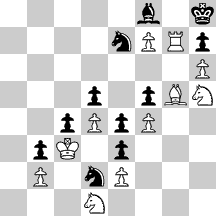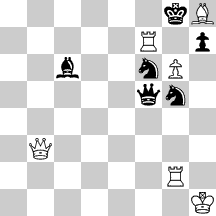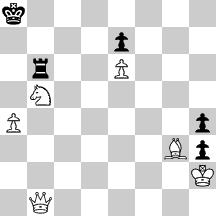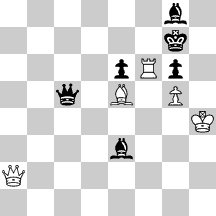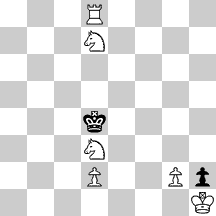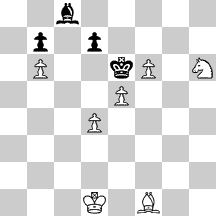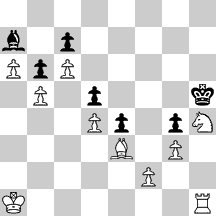La Régence, 1860
R:
sets of at least four #3–5 (2 pr.)
(Motto system. French chess rules apply. Castling or
en passant capture not allowed. La Régence
reserves the rights to publish all submitted problems.)
C:
1860-07-01
J:
Devinck, Lequesne, Saint-Amant, Laroche, Doazan,
A. de Rivière, Preti, P. Journoud.
A:
1 pr. C. Bayer (motto: Novem musis, novem problemata)
2 pr. T. Herlin (Fais ce que dois / Advienne que pourra)
S:
i. 3 (March 1860), p. 65–68: announcement
i. 8 (August 1860), p. 251–2: received sets listed
i. 9 (September 1860):
p. 257–264: final report for
each set of the tourney
p. 265–266: awards
p. 287: problems 33, 34: C. Bayer (problems 7 and 6 below)
p. 288: problems 35, 36: T. Herlin (problems 5 and 10 below)
p. 317–318: solutions.
Bayer: problems 34–42, p. 46–54; solutions p. 119–124.
Herlin: problems 51–67, p. 63–79; solutions p. 127–131.
N:
18 sets with totally 141 problems were received. (There
was no maximum limit of set sizes: one set contained as many as 39 problems.)
The individual set reports refer to problems by number,
but unfortunately those numbers are not repeated in the tourney book. Thus,
it is difficult to be certain what problem a particular judgement refers
to.
The problems by are T. Herlin published in
La Régence as well as in the tourney book as: "Par M. Th. Herlin (l'Anonyme de Lille)."
Bayer's set consisted of 9 problems: all of them
survived testing. Herlin's set consisted of 18 problems, but one of them was
found to be faulty, and was omitted from publication.
As issue 9 of La Régence, in which two of the
problems from each of the two prize-winning sets were published,
as well as the tourney book were all published in September 1860,
precedence of publication has not been practical to research. Here,
the tourney book is assumed to be the earliest publication.
Awards
The numbering of problems follow the order of the tourney book. As noted, it is not necessarily the same numbers used in the individual set reports.

